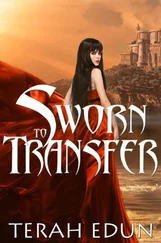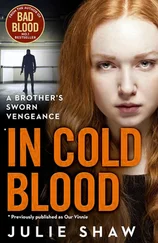Kjartan cautioned me as we walked towards the barrack's mess hall, and his words reminded me of Aelfgifu's mistrust of palace intrigue. 'I rely on you to keep silent about what you witness today,' he said, 'There are many who would like to see all the veteran huscarls purged. The tide of affairs is moving against us, at least in England. We have fewer and fewer opportunities to celebrate our traditions, and our enemies would use our ceremonies to denounce us as evil pagans. The Elder Ways offend the bishops and archbishops as well as the king's church advisers. So your task today will be to serve as my cup-bearer at the feast and to be discreet.'
Kjartan and I were among the last to enter the hall. There were no trumpet blasts or grand arrivals and no women. About forty huscarls were already standing in the room, dressed in their finery. There was no sense of rank or social standing. Instead an air of fellowship prevailed. One man I recognised instantly, for he stood a head taller than anyone else in the room, which was remarkable in itself because the huscarls were mostly big men. The giant was Thorkel the Tall, the king's vice-regent. When the group around him parted, I saw that his legs were freakishly long, almost as if he were wearing the stilts some jugglers use in their performances. It made him look ungainly, as his body was of normal proportions, though the arms were long and dangled oddly by his sides. When he listened to his companions Thorkel was obliged to bend over to bring his head closer. He reminded me of a bird I had occasionally seen when hawking in the marshes with Edgar - the wandering stork.
'Where do you want me to stand?' I said quietly to Kjartan. I did not want to disgrace him in etiquette. There was no division of the tables as at Ealdorman Aelfhelm's feast, where the seating arrangement distinguished between commoner and nobly born. Now a single large table stood in the middle of the room, one place of honour at its head, benches down each side. Service trestles had been set up in one corner for the tubs of mead and ale, and somewhere I could smell roasting flesh, so a kitchen was nearby.
'Stand behind me when the company moves to table. Huscarls are seated by eminence of military prowess and length of service, not because they are high born or well connected,' he replied. 'After that, just watch what the other cup-bearers do and follow their example.'
At that moment I saw Thorkel move towards the place of honour at the head of the table. When all the huscarls had taken their places on the benches, we cup-bearers placed before them their drinking horns already filled with mead. I could not see a single glass goblet or a drop of wine. Still seated, Thorkel called a toast to Odinn, then a toast to Thor, then a toast to Tyr, and a toast to Frey. Hurrying back and forth from the service trestles to refill the drinking horns for each toast, I could see that the cupbearers were going to be kept busy.
Finally Thorkel called the minni, the remembrance toast to the dead comrades of the fellowship. 'They who died honorably, may we meet them in Valholl,' he announced.
'In Valholl,' his listeners chorused.
Thorkel unfolded his great length from his chair and rose to speak. 'I stand here as the representative of the king. On his behalf I will accept renewal of the fellowship. I begin with Earl Eirikr. Do you renew your pledge of allegiance to the king and the brotherhood?' A richly dressed veteran seated closest on the bench to Thorkel stood up and announced in a loud voice that he would serve and protect the king, and obey the rules of the brotherhood. I knew him as one of Knut's most successful war captains, who had also served his father Forkbeard before him. For this service Eirikr had received great estates far in the north of England, making him one of the wealthiest of Knut's nobles. Both his arms sported heavy gold tores, which were marks of royal favour. Now I knew why Herfid the skald loved to refer to Knut as the 'generous ring giver'.
So it went on. One after another the names of the huscarls were called out, and each man stood up to renew his oath for the coming year. Then, after the pledges were all received, Thorkel called out the name of three of the huscarls who were in England but had failed to attend the gemot.
'What is your verdict?' he asked the assembled company. 'A fine of three mancus of gold, payable to the fellowship,' a voice said promptly. I guessed that this was customary forfeit. 'Agreed?' asked Thorkel. 'Agreed,' came back the response.
I was beginning to understand that the huscarls ruled themselves by general vote.
Thorkel moved on to a more serious violation of their code. 'I have received a complaint from Hrani, now serving with the king in Denmark. He states that Hakon was asked to look after his horse, specifically his best battle charger, for him. The horse was too sickly to be shipped with the army for Denmark. Hrani goes on to state that the horse was neglected and has since died. I have established these facts as true. What is your verdict?'
'Ten mancus fine!' shouted someone.
'No, fifteen!' called another voice, a little drunkenly I thought.
'And demotion by four places,' called another voice.
Thorkel then put the matter to a vote. When it was passed, a shame-faced huscarl stood up and moved four places further away from the head of the table before sitting down among his comrades.
'All that talk of horses reminds me that I'm getting hungry,' a wag shouted out. It was definitely a tipsy voice. It was beginning to be difficult to hear Thorkel above the general background hubbub.
'Who's the glum-looking fellow at the end of the table?' I asked Gisli's cup-bearer, a quiet young man with an unfortunate strawberry birthmark on his neck. He glanced across to the huscarl sitting silently by himself. 'I don't know his name. But he's in disgrace. He committed three transgressions of the rules and has been banished to the lowest end of the table. No one is allowed to talk to him. He'll be lucky if his messmates don't start throwing meat bones and scraps of food at him after the meal. That's their privilege.'
Suddenly a great cheer went up. From the side room where
the cooks had been at work four men appeared. They were carrying between them the body of a small ox, spit roasted, which they lifted over the heads of the revellers and placed on the centre of the table. The head of the ox was brought in separately and displayed on a long iron spike driven into the floor. An even louder cheer greeted the four men when they appeared a second time with another burden. This time the carcass they carried was the body of a horse. This too had been roasted and its ribs stood up like the fingers of a splayed hand. The roast horse was also placed on the table and its head on a second spike beside the ox's. Then the cooks withdrew, and the huscarls fell upon the food, hacking it up with their daggers, and passing chunks up the table. 'Thank the Gods we can still eat real meat on feast days whatever those lily-white priests say,' a whiskery veteran announced to no one in particular, chewing heartily, his beard already daubed with morsels of horse flesh. 'Makes no sense that the White Christ priests forbid their followers to eat horse flesh. Can't think why they don't ban mutton when they spend so much time talking about the Lamb of God.'
As the pace of eating slowed, I noticed the cooks and other servitors leave the mess hall. Only the huscarls and their cupbearers remained. Then I saw Thorkel nod to the disgraced huscarl seated at the end of the table. It must have been some sort of pre-arranged signal for the man got up from his place and walked across to the double entrance doors. Closing them, he picked up a wooden bar and dropped the timber into two frame slots. The door was now effectively barred from the inside. Whatever was now going to take place inside the mess hall was definitely a private matter.
Читать дальше








